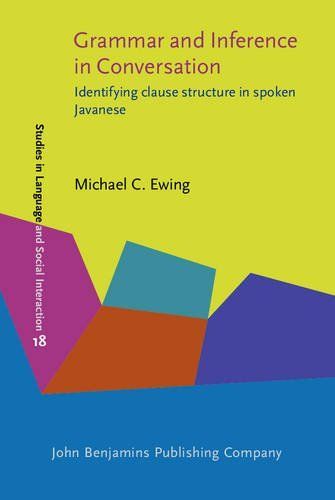
Grammar and Inference in Conversation Identifying Clause Structure in Spoken Javanese
This study analyzes how morphosyntactic structures and information flow characteristics are used by interlocutors in producing and understanding clauses in conversational Javanese, focusing on the Cirebon variety of the language. While some clauses display grammatical mechanisms used to code their structure explicitly and redundantly, many other clauses include few if any of these grammatical resources. These extremes mark a cline between the morphosyntactic and paratactic expression of clauses. The situation is thrown into relief by the frequency of unexpressed referents and conversationalists' heavy reliance on shared experience and cultural knowledge. In all cases, pragmatic inference grounded in the interactional context is essential for establishing not only the discourse functions, but indeed also the very structure of clauses in conversational Javanese. This study contributes to our understanding of transitivity, emergent constituency, prosodic organization and the co-construction of meaning and structure by conversational interlocutors.